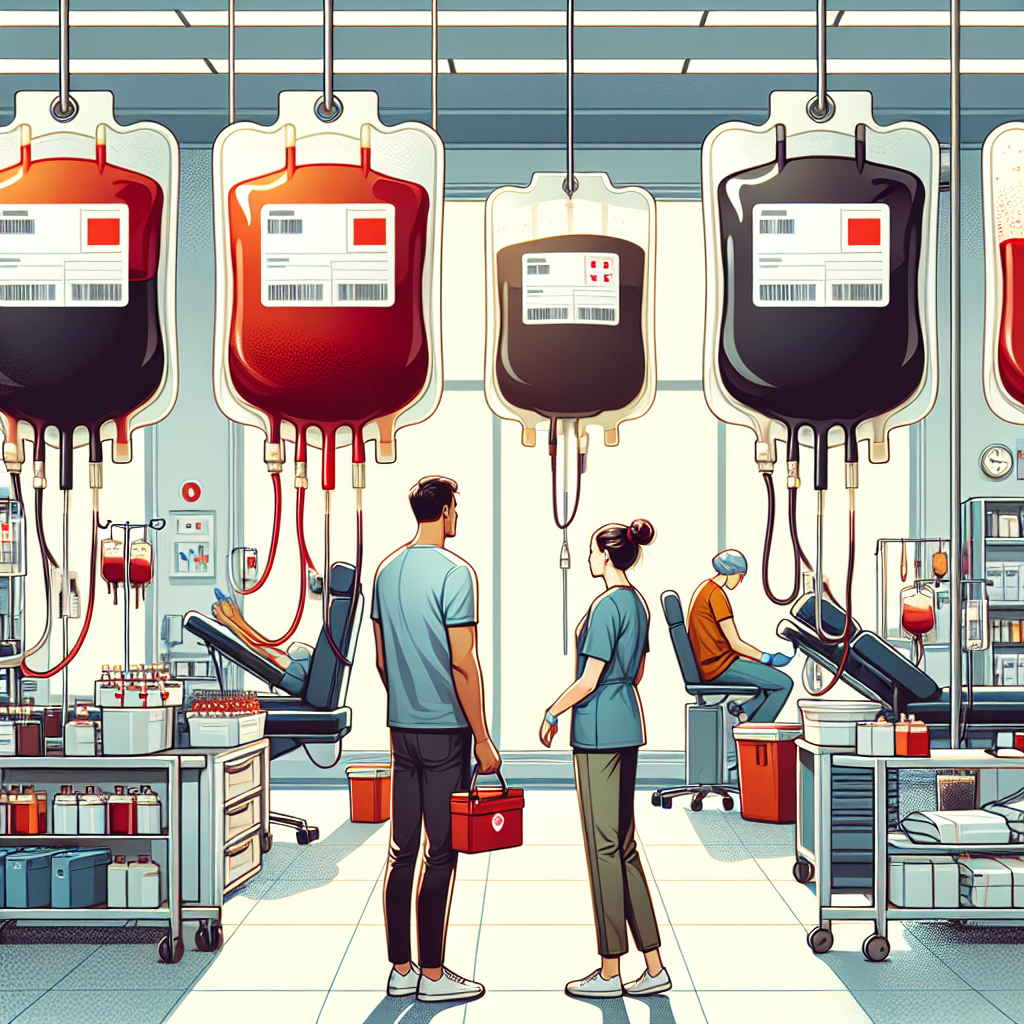Blood donation is often recognized as a selfless act that saves lives, but few are aware of the health benefits it can offer to the donor, especially concerning heart health. While the immediate satisfaction of helping those in need is a powerful incentive, understanding how regular blood donation can contribute to cardiovascular wellness adds another layer of motivation.
The Connection Between Blood Donation and Heart Health
Blood donation is linked to various heart-healthy benefits. When you donate blood, you not only help others but also engage in a process that can stimulate your body’s functions. One of the primary advantages of regular blood donation is its potential to lower the risk of heart disease.
Iron Regulation
Iron is an essential mineral for the body, but too much iron can lead to a condition known as hemochromatosis, which can cause an array of health issues, including heart problems. Regular blood donation helps maintain healthy iron levels, which is crucial for cardiovascular health.
Blood Viscosity Reduction
Thicker, more viscous blood is more challenging for the heart to pump and can increase the risk of clot formation and arterial blockage. Donating blood regularly can help reduce blood viscosity, ensuring smoother flow and reducing the workload on the heart.
Blood Pressure Improvement
Several studies suggest that regular blood donation can help in lowering blood pressure, which is a significant risk factor for heart disease. By donating blood, individuals might see an improvement in their blood pressure levels, thereby reducing the risk of heart disease and stroke.
Psychological Benefits
The psychological impact of donating blood can be profound. Knowing that you have contributed to saving lives can lead to a sense of well-being and stress reduction, which are beneficial for heart health. The act of donating blood can promote a feeling of community and social connectedness, which has been shown to have a positive effect on heart health and overall longevity.
Supporting Research and External Resources
To underscore the points made, it’s valuable to consult niche and specific resources. For example, a study on the National Institutes of Health website explores the relationship between blood donation and the reduction of blood pressure, while another resource at the American Journal of Epidemiology discusses the role of iron in cardiovascular disease. These studies provide an in-depth look at the mechanisms by which blood donation can influence heart health.
Linking Blood Donation to Overall Health
While the focus here is on heart health, it’s important to recognize that regular blood donation can have wider health implications. For instance, the act of blood donation can be a step towards a more health-conscious lifestyle, often encouraging individuals to maintain good health and avoid risky behaviors to remain eligible for donation.
Related Health Articles
In exploring the relationship between blood donation and heart health, it’s also useful to consider related health topics. For example, the impact of sedentary behavior on heart disease risk is significant, and understanding this can complement the benefits of blood donation. Additionally, strategies for heart health in cold weather, as discussed in another Avix Health article, can provide useful tips for maintaining cardiovascular wellness during different seasons.
Practical Steps for Blood Donation
If you’re considering blood donation, there are a few practical steps you should take:
- Eligibility Check: Ensure you meet the requirements for blood donation, which often include age, weight, and health criteria.
- Hydration: Drink plenty of fluids before and after donating blood to help your body replenish lost fluids quickly.
- Nutrition: Eat a healthy meal before your appointment and focus on iron-rich foods to help your body recover the iron lost during donation.
- Rest: Take it easy after donating blood. Avoid strenuous activities for at least 24 hours to allow your body to recover.
Conclusion
The act of donating blood is a noble and lifesaving gesture, but its benefits extend beyond altruism. The potential for improved heart health through regular blood donation is a compelling reason for individuals to roll up their sleeves. By understanding the positive impact on heart health, blood donors can be motivated by not only the good they do for others but also the good they do for themselves.
For further reading on the benefits of blood donation and its relationship with overall well-being, consider exploring The Role of Eco-Friendly Living on Cardiovascular Disease Prevention and Combating Heart Disease: The Potential of Anti-inflammatory Medications, which offer valuable insights into maintaining a heart-healthy lifestyle.



